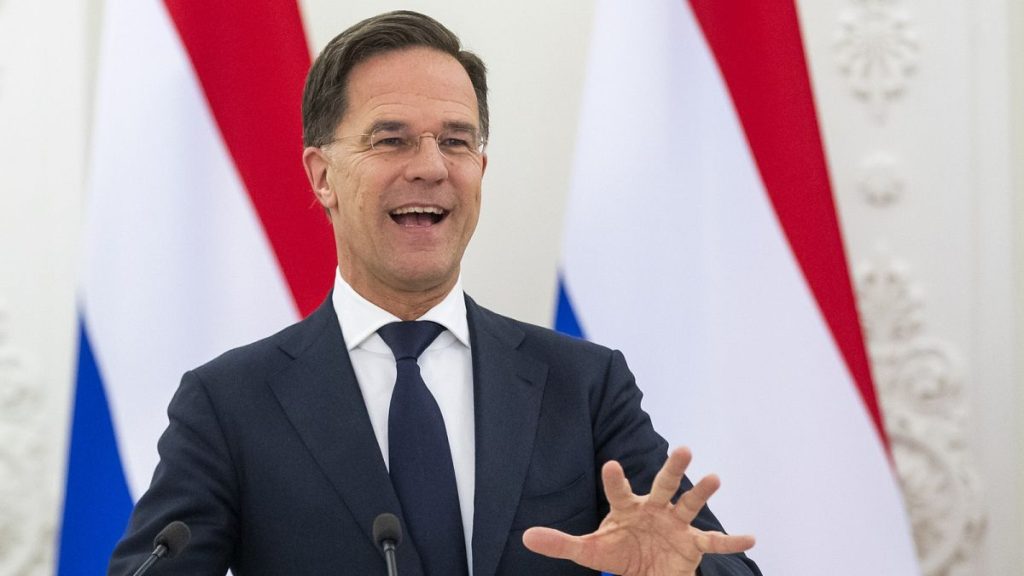Dutch Prime Minister Mark Rutte has been selected as the next Secretary General of NATO, following Jens Stoltenberg’s tenure. Rutte will face challenges as he navigates Russian aggression and potential shifts in US support within the transatlantic alliance. His appointment was confirmed just before a summit in Washington, DC celebrating NATO’s 75th anniversary. After some initial competition from Romanian Prime Minister Klaus Iohannis, Rutte secured backing from Romania and Hungary’s Viktor Orbán, who had concerns about supporting Ukraine. Rutte’s term will last at least four years, during which he will need to carefully navigate support for Ukraine without provoking further Russian aggression.
The handover of leadership from Stoltenberg to Rutte comes at a crucial time for NATO, as it grapples with the ongoing conflict in Ukraine and the looming US Presidential elections. Republican candidate Donald Trump has expressed skepticism towards the alliance, potentially complicating NATO’s strategic decisions. Rutte, who has led the Netherlands since 2010, will step down from his role as Prime Minister on July 2nd to assume his new position as NATO Secretary General. His liberal party, the VVD, will be part of a coalition government led by former spy chief Dick Schoof after recent elections saw increased support for right-wing leader Geert Wilders.
Rutte’s tenure as NATO Secretary General will involve striking a delicate balance between supporting Ukraine and avoiding escalation with Russia. With the NATO summit coinciding with the 75th anniversary of the alliance, Rutte will need to demonstrate strong leadership in advocating for the organization’s interests. The complexity of the geopolitical landscape, including the upcoming US elections, adds further uncertainty to NATO’s future direction. Rutte’s experience in managing coalition governments in the Netherlands will be valuable as he navigates the various interests of NATO’s 32 member countries.
The selection of Rutte as NATO Secretary General also reflects broader dynamics within the European Union, with potential implications for EU leadership positions. The competition for top jobs, including the position of NATO Secretary General and the EU’s foreign policy chief, underscores the intricate interplay of power and influence within European institutions. Rutte’s appointment signals a shift in leadership at NATO, with Stoltenberg’s departure coinciding with a changing political landscape in Europe. As Rutte assumes his new role, he will need to demonstrate diplomatic skill and strategic vision to address the challenges facing the alliance.
Rutte’s attendance at the recent Ukraine summit in Switzerland underscores his commitment to supporting Ukraine in its conflict with Russia. The Netherlands’ ongoing support for Ukraine and Rutte’s pledge to continue backing the country demonstrate his engagement with pressing international issues. As he transitions to his role as NATO Secretary General, Rutte will need to maintain a strong stance on global security challenges while navigating the complexities of alliance politics. His leadership will be tested in the coming years as NATO grapples with evolving threats and uncertainties in the international arena.













